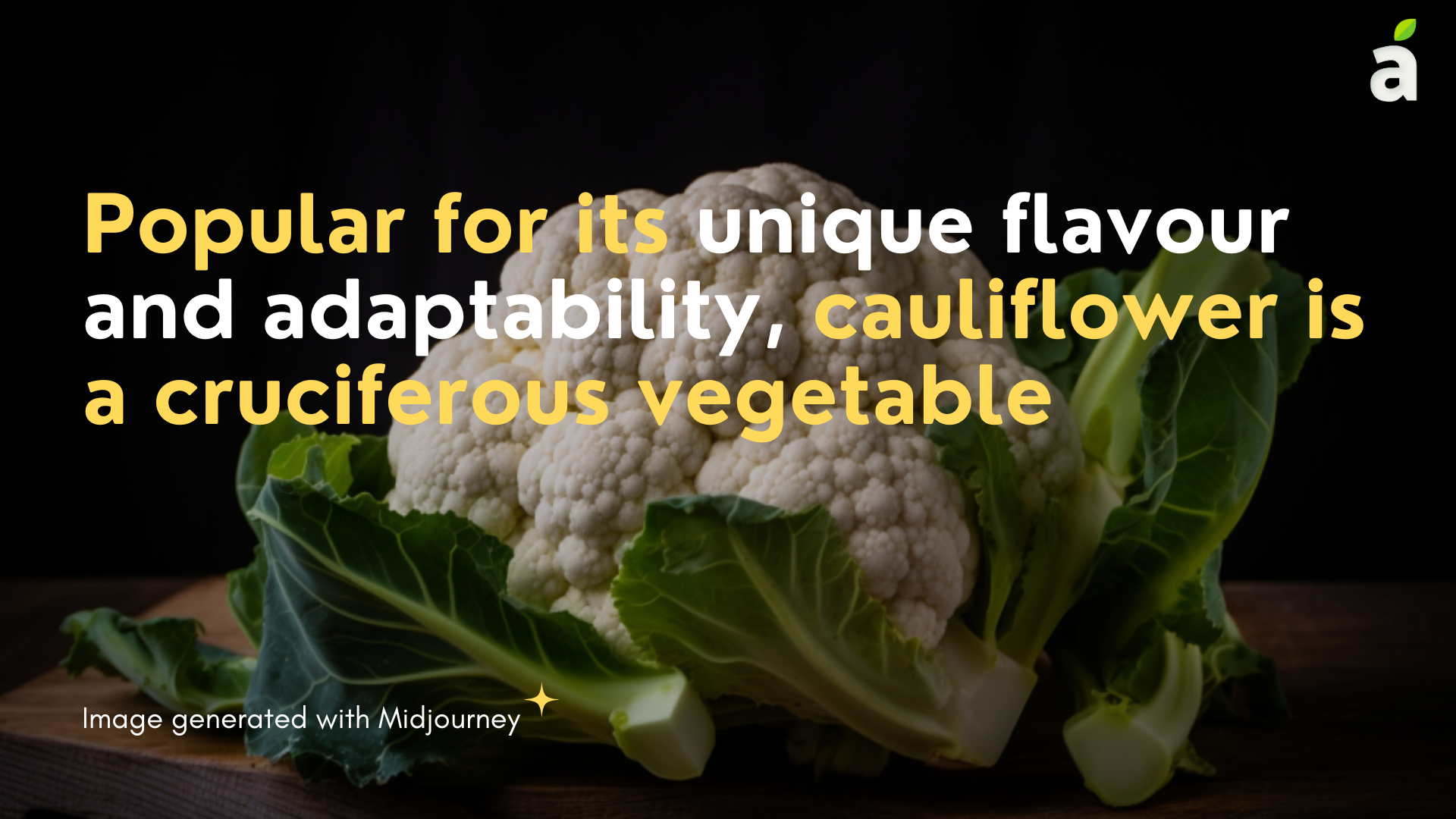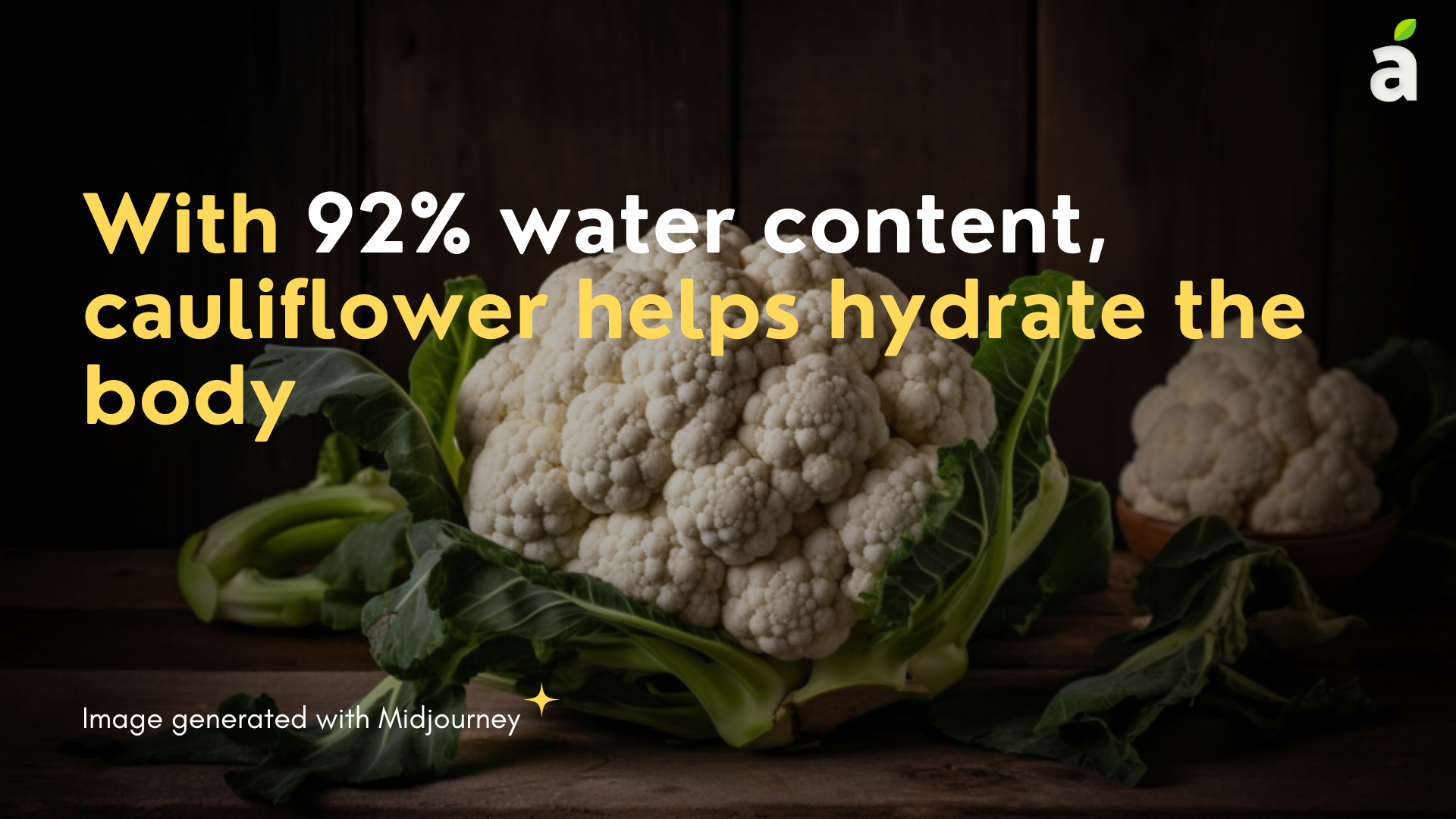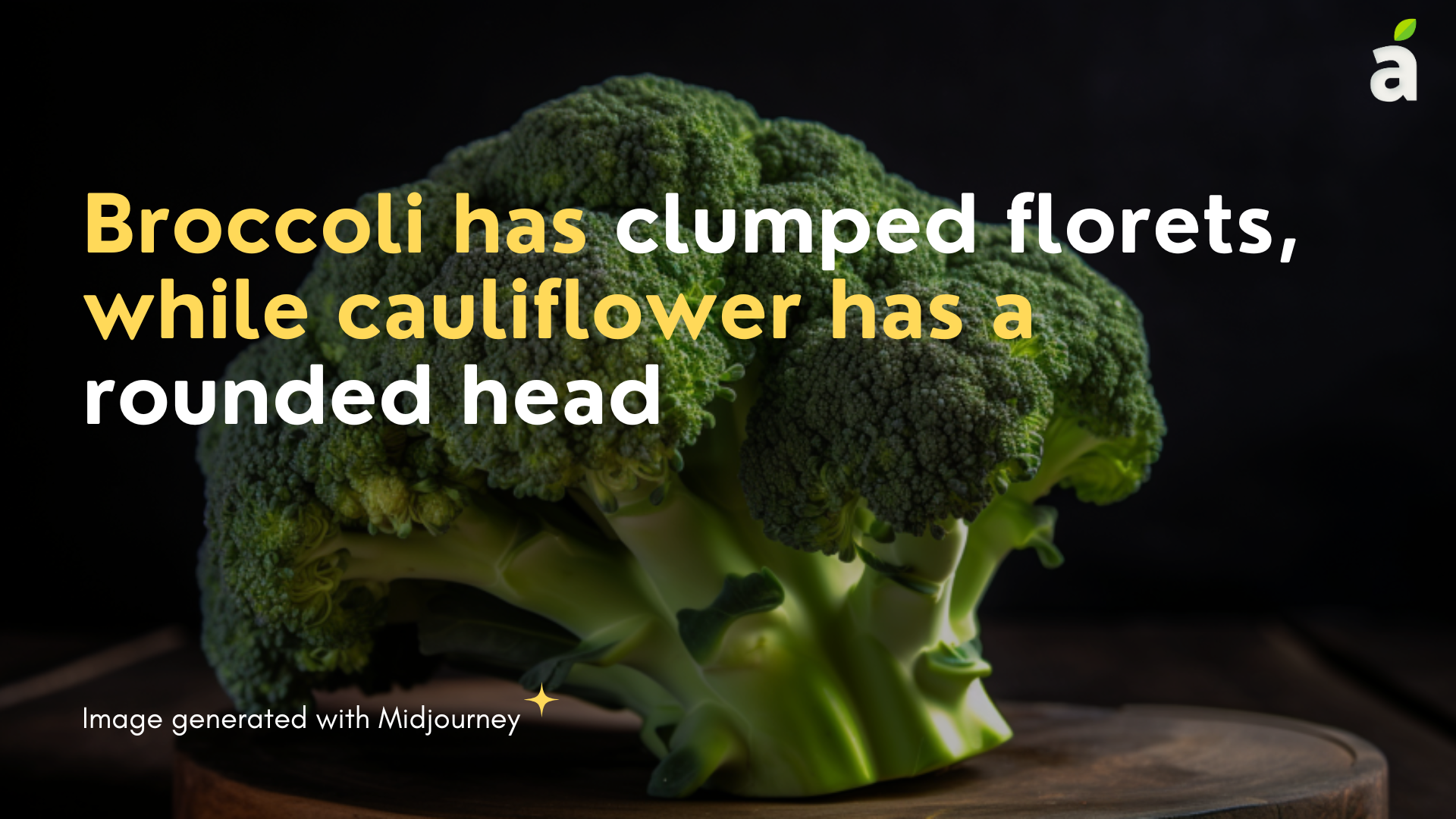Published Date January 24, 2003
Cauliflower: A Versatile and Nutritious Vegetable
By Naurin Ansari
3 min read
Last update date: January 24, 2003

Cauliflower is a cruciferous vegetable that has gained popularity in recent years due to its versatility, nutritional benefits, and unique flavour in multiple cuisines apart from Indian cuisine. From its humble beginnings as a member of the cabbage family, cauliflower has now become a staple in many cuisines worldwide.
In this blog, we will explore the goodness of cauliflower, tell you about some common concerns around it, and uncover the key differences between cauliflower and its close and fancier relative, broccoli.
What Good is a Cauliflower?
Cauliflower, a member of the cruciferous family, is a nutritious vegetable packed with fibre and B vitamins. Its high fibre content supports weight loss and aids digestion, while the presence of choline enhances learning and memory functions. While raw cauliflower offers a crunchy texture, proper cooking brings out a lightly sweet and nutty flavour.
With a water content of 92 grams per 100 grams, cauliflower helps keep the body hydrated. Furthermore, it possesses beneficial properties like antiviral, anti-inflammatory, and antibacterial effects, which contribute to reducing cell damage.
Cauliflower is packed with essential nutrients and offers numerous health benefits. Let’s explore the reasons why cauliflower should be part of your diet.
- Nutrient-Rich: Cauliflower provides a wealth of vitamins, minerals, and antioxidants, including vitamin C, vitamin K, folate, and fibre. It also contains essential minerals like potassium and manganese.
- Antioxidant and Anti-inflammatory Benefits: Cauliflower’s antioxidants, such as glucosinolates and isothiocyanates, combat inflammation and protect against chronic diseases, including certain cancers and heart disease. These compounds also assist in detoxification processes.
- Fibre Powerhouse: High in fibre, cauliflower promotes digestive health, aids in weight management, and helps regulate blood sugar levels. Its fibre content also contributes to a sense of fullness, making it a valuable addition to a balanced diet.[1][2][3]
The Problem with Cauliflower
While cauliflower offers numerous benefits, it's important to address some common concerns associated with its consumption:
- Digestive Issues: Due to its high fibre content, cauliflower can be challenging to digest for some individuals. This cruciferous vegetable contains raffinose, a hard-to-digest carbohydrate that can cause bloating and gas. It also contains glucosinolate, a sulphur compound that is responsible for flatulence or farting.
- Goitrogens: Cauliflower, like other cruciferous vegetables, contains goitrogens, which may potentially interfere with thyroid function in large amounts. However, cooking cauliflower deactivates these compounds, making it safe for consumption in moderation.[4]
Cauliflower and Broccoli: What is the Difference?
Cauliflower and broccoli share many similarities, but they also have distinctive characteristics that make them different from each other.
Appearance and Texture:
- Broccoli has loosely clumped florets with visible stalks and a long stem.
- Cauliflower forms a compact, rounded head composed of tightly packed florets.
- Broccoli has a tree-like structure, while cauliflower has a more tightly packed appearance.
Flavour and Taste:
- Broccoli has a strong, green vegetable taste with a slightly bitter flavour meanwhile cauliflower has a milder and sweeter taste with a slight nutty taste.
Nutritional Profile:
- Cauliflower tends to be lower in calories, carbohydrates, and protein compared to broccoli.
- Broccoli generally contains higher amounts of vitamin C, vitamin K, and iron.
Both vegetables offer unique taste experiences and nutritional benefits, providing versatility in cooking and enhancing the variety of your meals.[5]
Takeaway
Cauliflower is a versatile and nutritious vegetable that can enhance the flavour and nutritional value of your meals. With its array of vitamins, minerals, and antioxidants, cauliflower offers numerous health benefits. While it may pose challenges for some individuals with digestive sensitivity, cooking methods can help mitigate potential issues.
Understanding the differences between cauliflower and broccoli allows you to explore various culinary possibilities and diversify your vegetable intake. So, embrace the wonders of cauliflower and elevate your meals with cauliflower.
References
- https://www.medicalnewstoday.com/articles/282844#:~:text=Cauliflower%20is%20a%20cruciferous%20vegetable,and%20many%20other%20important%20nutrients
- https://www.thespruceeats.com/all-about-cauliflower-2215937
- https://www.webmd.com/food-recipes/health-benefits-cauliflower
- https://timesofindia.indiatimes.com/life-style/health-fitness/diet/this-is-a-common-side-effect-of-eating-cauliflower/photostory/81413526.cms?picid=81414017
- https://preparedcooks.com/difference-between-broccoli-and-cauliflower/#:~:text=The%20main%20difference%20between%20broccoli%20and%20cauliflower%20is,California%2C%20and%20broccoli%20is%20all%20harvested%20by%20hand
Choose Healthy With Us.
Know the real truth about your food. Stay informed and healthy, for free.

Download the App Now
Certified nutritionists trust our food recommendations. Safe to say, so can you :)











